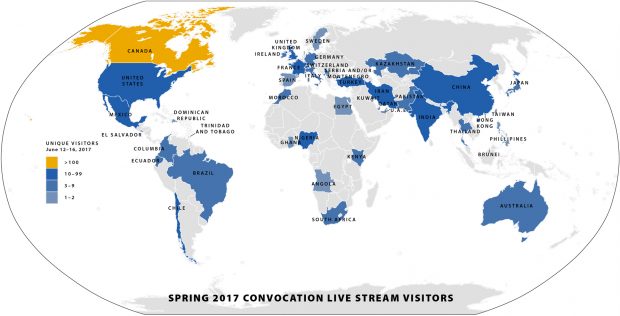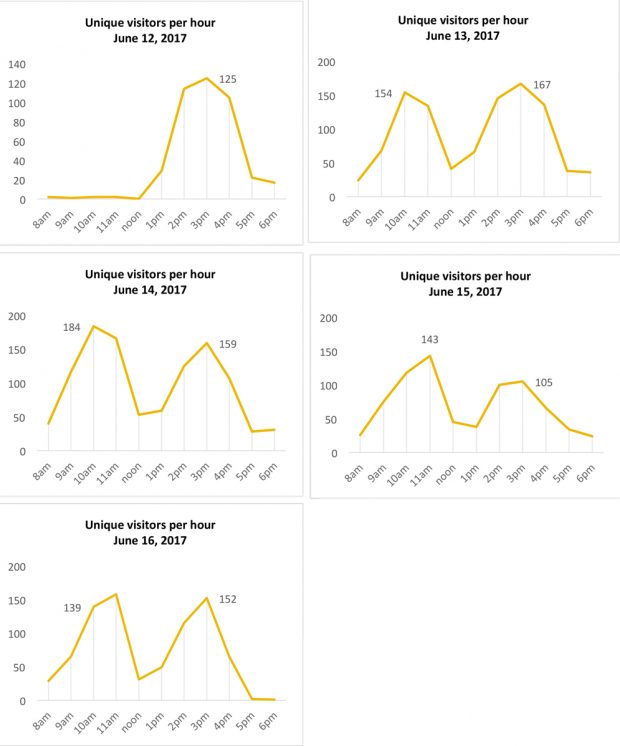This year’s Spring Convocation webcasting was a bit of a landmark for us. It was the first time we webcast using only HTTP Live Streaming (HLS) with a javascript, not Flash-based JW Player. In the last few months most major web browsers dropped support for the Flash plugin; this meant that our old JW player, which relied on flash to stream with Real Time Messaging Protocol (RTMP), would no longer work for the latest version of Chrome, Firefox, or any other browser without the Flash plugin.
Previously we had delivered the live stream with a Flash RTMP stream for most desktop browsers and an HTTP Live stream for browsers that could support it natively: Safari on Mac and iOS, and Microsoft Edge on Windows. For this year’s webcast Flemming Sorvin of Media Services and Ray Choo of Development Services upgraded JW player and tested live streams so that we could offer HTTP Live Streaming with the latest JW Player, using Javascript to replace the Flash engine and play the HLS stream in browsers that did not have built-in support for HLS.
The stats showed that our work paid off. A typical ceremony had between 143 to 167 viewers which is similar to the previous years, with our highest number of viewers, 184, on the morning of June 14. The feedback on the ceremony was positive and helpdesk calls showed that the player was working the way we hoped it would.
It’s always a thrill to be a part of Convocation. In nine ceremonies over five days, 2433 graduands walked across a stage set with the University ceremonial furnishings to receive their degrees, diplomas and certificates from Chancellor Shelagh Rogers and President Jamie Cassels before an audience of friends and family seated in the Farquhar Auditorium and watching by webcast around the globe. We take pride in providing the best webcast we can to help honour the efforts of our UVic graduands and share the celebration with their loved ones back home.
Another benefit of all our work becoming flash-free for Convocation is that we have already rolled out our new JW Player as the default video player for on-demand and live media streaming for the rest of campus. That means that our research areas, classes, graduate programs, promotional videos, and live webcast events will all use HTTP Live Streaming for better video delivery.



